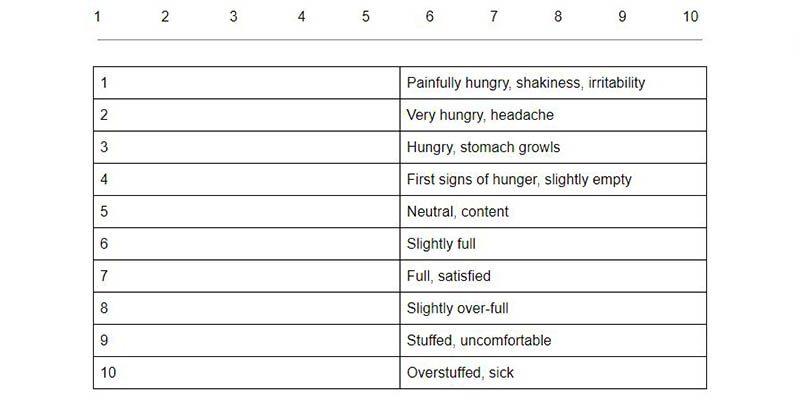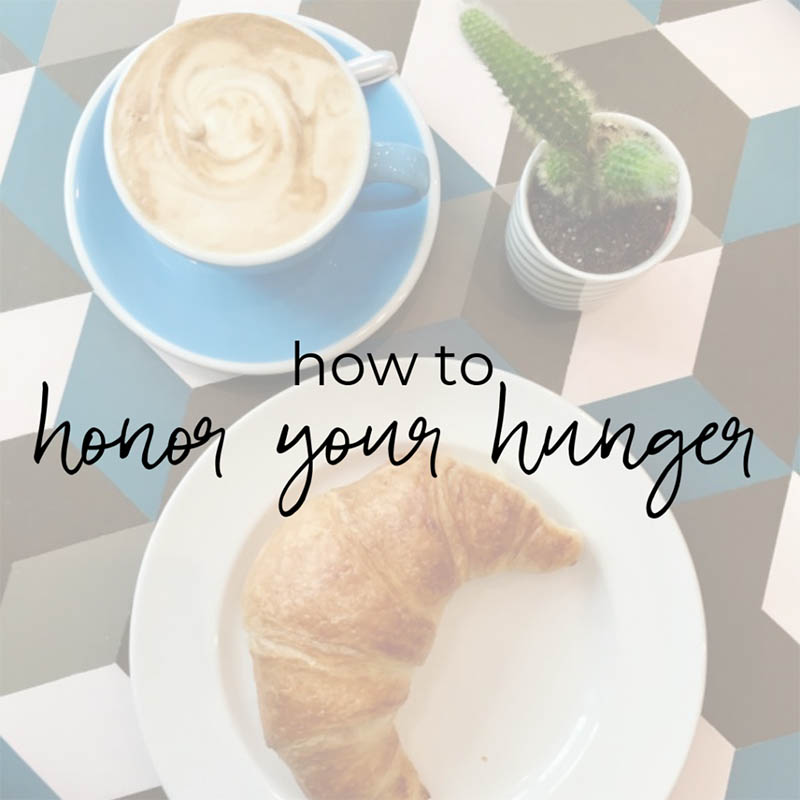Intuitive Eating – Part 2: Honor Your Hunger
This week we will discuss the next principle of Intuitive Eating: Honor Your Hunger. Tribole and Resch1, authors of, Intuitive Eating: A Revolutionary Program That Works, speaks of intuitive eating and the dangers diet culture can have on an individual’s relationship with food and thus mental health. When we honor our hunger, we allow ourselves to fuel our body adequately and our body learns to trust that we will feed it when we are hungry and stop when we become full.
So how do we honor our hunger? First, it is important to recognize your hunger and fullness cues. I like to think of this as a hunger/fullness scale rating from 1 to 10. See the hunger/fullness scale below.

Rating of 1 indicates feeling starving, shaky, irritable, etc., to 10 indicating feeling overstuffed and sick, and a rating of 5 being neutral, thus content. It is important to stay towards neutrality throughout the day meaning, when you have the first feelings of hunger, such as a rating of 4, you begin seeking out food so when you get to the point of being ready to eat, such as a rating of 3, you can honor your hunger and eat. By allowing yourself to eat when you become hungry, rather than waiting until you feel starving, rating of 1 to 2, you are able to eat an appropriate portion of food that your body needs. Often, when individuals wait until the point of starvation or feeling “hangry”, we eat large amounts of food very quickly leading us to feel overly full or sick, a rating between 8 to 10.

Honoring your hunger also means listening to your body and what it is wanting. As previously discussed, honoring your body means eating a cheeseburger because it sounds good. Honoring your body means eating a salad because that is what sounds good. Often individuals with eating disorders and/or disordered eating attempt to avoid certain foods, restrict the amount of food and ignore their body’s hunger/fullness cues. This often leads to an endless hunger disorder and a cycle of food restriction, followed by binge eating (or overeating), and attempts to compensate, purge, the calories consumed.
Restrictive food intake is not sustainable. Therefore, when individuals do “give in” to cravings he or she often over-indulges to the point of feeling overstuffed. This leads to negative feelings such as shame or guilt. This can result in purging behaviors, whether it is self-induced vomiting, over-exercising, laxative abuse, etc … By listening to our hunger/fullness cues, we are able to eat when we are hungry and stop when we feel satiated.
Disclaimer:
If you are struggling with an eating disorder or in early recovery of an eating disorder, mindful eating may not be appropriate as hunger and fullness cues can be diminished or absent. Before starting intuitive eating, talk with your dietitian first! A dietitian can help guide you towards a healthy body, mind, and spirit by working with you to challenge eating disorder beliefs and help you reconnect to the joy of eating!
Resources:
1TRIBOLE, E. V. E. L. Y. N., & Resch, E. (2020). Intuitive Eating: a revolutionary program that works. S.l.: ST MARTINS ESSENTIALS.
Series:
Introduction: Intuitive Eating: The Anti-Diet
Part 1 – Reject the Diet Mentality



